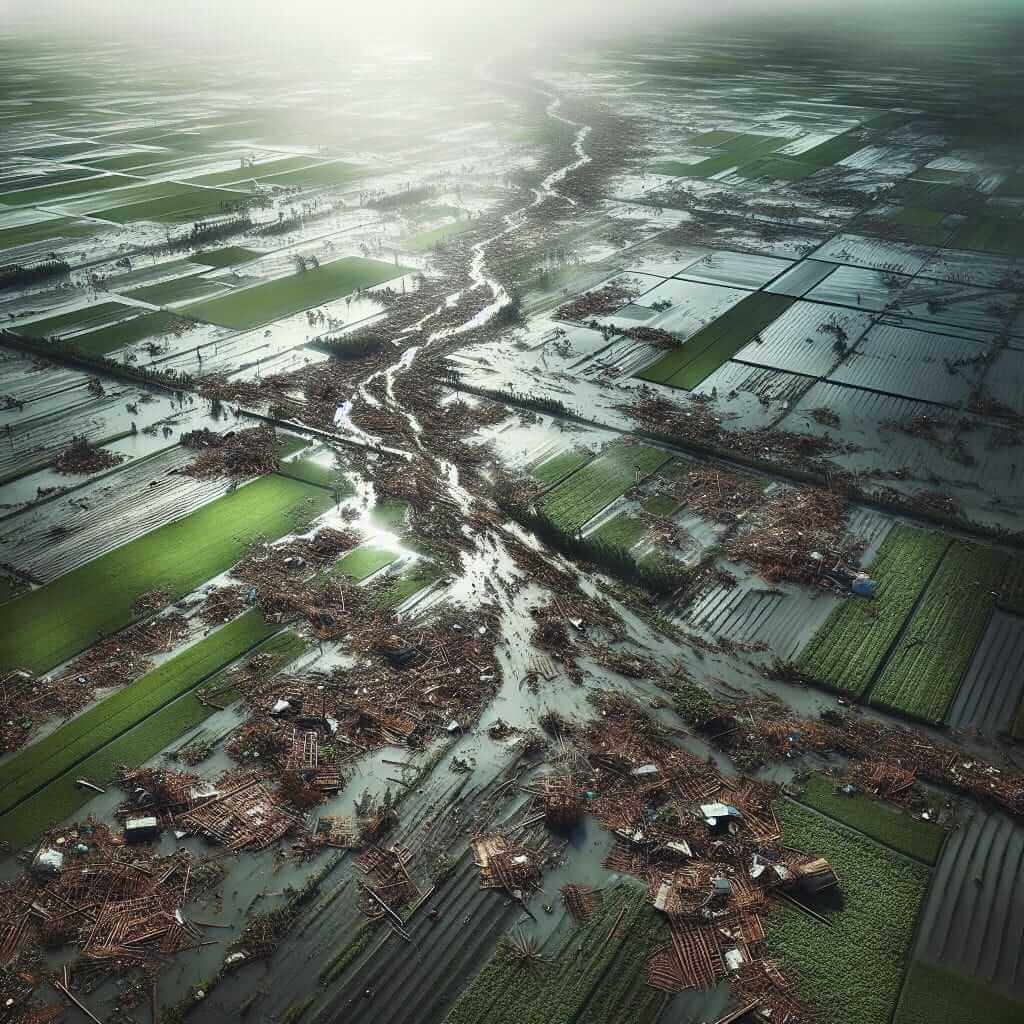The IELTS Reading test is an important part of the IELTS exam, evaluating how well candidates can read and understand written English. The topic of climate change and its impact on agricultural practices has become increasingly relevant and could certainly appear in a Reading test. Understanding this topic thoroughly not only helps you in addressing such a passage better but also prepares you for various types of questions that might be based on it.
Climate Change and Agriculture: Practice Reading Test
Passage
How Does Climate Change Affect Agricultural Practices Worldwide?
Climate change has brought about significant shifts in global weather patterns, which in turn has had profound effects on agricultural practices across the globe. From altered precipitation patterns to increased frequency of extreme weather events, the implications for agriculture are multifaceted.
One of the foremost impacts of climate change on agriculture is the alteration of precipitation patterns. Regions that were once agricultural hubs due to their predictable rain patterns are now experiencing irregular rainfall, making farming activities highly unpredictable. For instance, the Sahel region in Africa has faced severe droughts over the past few decades, adversely affecting crop yields.
In addition to precipitation changes, rising temperatures have also imposed severe challenges on agricultural productivity. High temperatures can cause heat stress in crops, leading to reduced yields. This is particularly concerning for crops such as wheat and maize, which are highly temperature-sensitive. Furthermore, regions such as South Asia, which rely heavily on rice cultivation, are witnessing declines in productivity due to increased temperatures.
Extreme weather events, such as hurricanes and floods, are another consequence of climate change that affects agriculture. These events can destroy crops, erode soil, and disrupt the overall farming infrastructure. For example, hurricanes in the Caribbean cause devastating damage to banana and sugarcane plantations annually.

Another impact of climate change is the shift in growing seasons and zones. Farmers are now forced to adapt by changing crop varieties or shifting to entirely new crops that can tolerate new climatic conditions. In some regions, traditional farming practices are no longer viable, and farmers need to invest in new technologies and practices to secure their livelihoods.
In conclusion, climate change is having an extensive impact on agricultural practices worldwide. The unpredictability of weather patterns, increased temperatures, extreme weather events, and shifting growing zones are challenges that farmers must face and adapt to. As the global climate continues to change, agricultural strategies will need to become increasingly resilient and innovative to ensure food security for future generations.
Questions
Multiple Choice
-
What is one primary way that climate change affects agriculture according to the passage?
a. Increased global population
b. Changes in precipitation patterns
c. Technological advancements
d. Economic policies -
Which crop is mentioned as being highly temperature-sensitive in the passage?
a. Rice
b. Wheat
c. Bananas
d. Sugarcane
True/False/Not Given
-
The Sahel region in Africa has experienced increased rainfall in recent decades.
- True
- False
- Not Given
-
Hurricanes are a significant threat to agriculture in South Asia, causing damage annually.
- True
- False
- Not Given
Matching Information
-
Match the following impacts of climate change to their consequences on agriculture:
- Precipitation changes
- Increased temperatures
- Extreme weather events
- Shifting growing seasons
a. Heat stress in crops
b. Destroying crops and soil erosion
c. Unpredictable farming activities
d. Changing crop varieties or new crops
Sentence Completion
- Farmers in certain regions have to __ due to new climatic conditions.
Answers and Explanations
- b. Changes in precipitation patterns – The passage emphasizes precipitation pattern changes as a major impact of climate change on agriculture.
- b. Wheat – The passage mentions wheat and maize specifically as crops sensitive to temperature increases.
- False – The passage clearly states that the Sahel region has faced severe droughts, not increased rainfall.
- False – The passage specifies that hurricanes in the Caribbean, not South Asia, cause significant damage to plantations.
-
- Precipitation changes – c. Unpredictable farming activities
- Increased temperatures – a. Heat stress in crops
- Extreme weather events – b. Destroying crops and soil erosion
- Shifting growing seasons – d. Changing crop varieties or new crops
- Farmers in certain regions have to change crop varieties or shift to new crops due to new climatic conditions.
Common Mistakes
- Misinterpreting the impact: Students might often misunderstand the specific effects of climate change, confusing the regions or misidentifying the crops affected.
- Overlooking key details: It’s crucial to pay attention to the specific examples and details mentioned in the passage to answer accurately.
Vocabulary
- Precipitation (n): /prɪˌsɪpɪˈteɪʃən/ – rain, snow, sleet, or hail that falls to or condenses on the ground.
- Heat stress (n): /hit strɛs/ – physiological stress due to elevated temperatures affecting living organisms.
- Erosion (n): /ɪˈroʊʒən/ – the process of eroding or being eroded by wind, water, or other natural agents.
Grammar Focus
- Present Perfect Continuous: Used in “regions that have faced severe droughts over the past few decades,” indicating an action that started in the past and continues to the present.
- Structure: [has/have + been + present participle]
- Example: “They have been working on new agricultural methods to cope with climate change.”
Tips for High IELTS Reading Scores
- Practice comprehensively: Familiarize yourself with various types of questions.
- Skim and scan: Quickly find key information and understand the overall idea of passages.
- Improve your vocabulary: A strong vocabulary is essential for understanding the passage and answering questions accurately.
With these insights and practice, you’ll be well-prepared to tackle any IELTS Reading passage on climate change and agricultural practices.